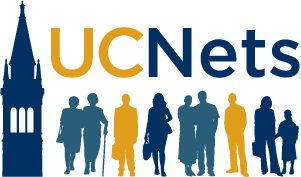July 6-7, 2023 on the UC Berkeley Campus
Cosponsored by the Center for Economics and Demography of Aging (CEDA), the Berkeley Population Center (BPC) and the UCNets team, with partial funding from NICHD P2CHD073964 and NIA P30AG012839.
This small meeting consists of speakers covering a wide variety of topics relative to egocentric networks, small focused discussion groups, and ample time for our own networking and developing new connections. Lunch will be served on Thursday.
View the preliminary program as of June 17 2023.
Speakers include:
Shira Offer, Bar Ilan University, Claude Fischer, UC Berkeley and Keun Bok Lee, UCLA
“Who Comes, Who Goes, Who Stays? Alters’ Trajectories Through Egos’ Networks”
Mamadou Habib Diallo and Guillaume Favre, University of Toulouse
“A more cohesive social life ? a study on personal networks in the Republic of Guinea”
Marva Goodson-Miller, Arizona State University
“The Structural Embeddedness, Characteristics, and Stories of Crime-Involved Women’s Helpful and Harmful Egocentric Network Members”
Alex Shpenev, Arushi Saxena, Hans-Peter Kohler, Cristina Bicchieri, University of Pennsylvania
“Toilet Use as a Descriptive Norm: Egocentric Analysis using Social Norms theory”
Roberto Cantillan Carrasco, Pontificia Universidad Católica de Chile
“Educational mobility, homophily, and social closure”
Hsinfei Tu, UMass Amherst “A more homophilious life? Social network dynamics and life transitions.”
Tara McKay, Nathaniel Tran, Niya Kari, Lana Trautman and Kirsty Clark, Vanderbilt University
“Effects of Discrimination on Sleep Quality: A Driver of LGBTQ Health Disparities”
With keynote address from Thomas Valente, University of Southern California.
To register, visit: https://forms.gle/MQMNjqtjGvQHp4Ca8
Deadline for registration: June 26 or till full.
